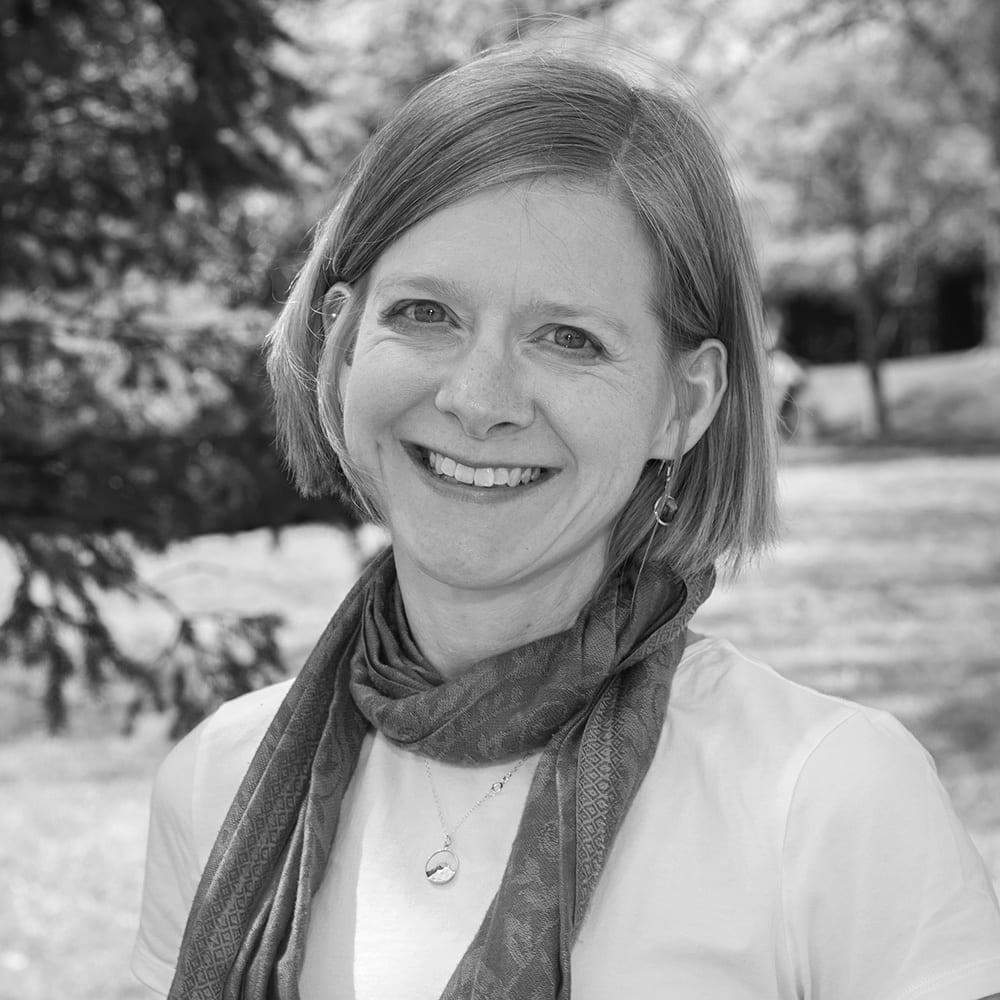Making Space to Ask the Questions
I have taught a class called “Hope, Death, and the End of the World” for a few years now. Some students sign up because they want to talk about death, or life after death, or their fears about dying, and they’ve never had a class that invited them to do that before. Many of them have already experienced death. Some have lost grandparents or know they will soon. Some have lost friends or siblings. They long to make sense of those experiences, to grieve them, to put them in relationship to faith.
They’re simultaneously hungry to talk about these things of ultimate significance and anxious that doing so will only increase their fears about death and the state of the world. Social media gives all of us unprecedented, constant access to bad news about the world—wars, floods, fires, droughts. The present seems bad enough; what will the future be like?
In general, there are few (if any?) public spaces where it is safe or acceptable to lay bare our fears about dying, or our fears about our loved ones dying, or our unquenchable grief over our loved ones who have already died. When my mother died, I had a sense that I had entered into a secret society of the grieving; it was all around me and I had never noticed before. Perhaps the most profound experience I ever had in a class was when I burst into tears in front of my students while trying to explain that the book they were reading was written by the man who directed my dissertation and who had died just a few months ago. (The book is The Lost Art of Dying, by Allen Verhey; it is a lovely meditation on what it means to die in Christ.)
My students responded to this display of uncontrolled emotion with so much compassion and grace. Although it was entirely unplanned, it opened an important door for us: it allowed us to discuss how people who believe deeply in the resurrection of the dead can mourn the loss of people we love in this life. We talked about the apostle Paul’s instructions to grieve with hope—not to stop grieving, but to grieve with hope (1 Thessalonians 4:13). We considered the witness of Ambrose of Milan, a fourth century Christian, who wept over the death of his beloved brother and insisted that his faith in the resurrection led him not to stoically avoid weeping but to long more ardently for God’s kingdom to come.
But we do not want you to be uniformed, brothers and sisters, about those who have died, so that you may not grieve as others do who have no hope. - 1 Thessalonians 4:13
Many years ago, when I was studying the book of Hebrews, I read a verse that took my breath away. It’s still one of my favorite verses in Scripture. The author of Hebrews writes that Jesus shared in our flesh and blood existence so that he might “destroy the one who has the power of death” and “free those who all their lives were held in slavery by the fear of death” (2:14, 15).
Yes, Jesus came to atone for sin. But Jesus also came to destroy the power of death and free us from the enslaving fear of death. It is a truth I cling to when I pause long enough to consider my own mortality and feel a shiver of that fear run through me. Jesus came to free me, and all of us, from that fear. In a course evaluation, one student wrote that the course had made them less afraid of dying. I saved that one and keep it close at hand, so I can look at it whenever I wonder if my teaching is doing any good.
Bodies in heaven
A class about death turns out to be a class about bodies. How much of my identity is my body? How do we honor bodies after the person dies? Why do we have such a visceral horror of mistreating dead bodies? I taught this class just before the pandemic and again when it was in full swing. Teaching it at the height of the pandemic meant we all had to face the grim reality and sudden visibility of dead bodies piling up in morgues and outside hospitals and even in mass graves when death outstripped our ability to process it and to shield it from public view.
In this context, I taught about the resurrection of the body, which many of my students found surprising and counterintuitive. After all, one of the most familiar Christian teachings is that the soul outlives the body, and that the soul goes to heaven (or hell) when the person dies. If this is true, why do we need bodies in the afterlife? What’s the point of resurrecting the body if the soul is already enjoying eternal bliss in heaven?
Here we stand, as my mentor Klyne Snodgrass taught me, at the intersection of two truths. Scripture affirms that God holds us in life and in death, and that the soul endures after the body dies. While Jesus is dying, he tells a bandit who is being executed alongside him on another Roman cross that they will be together in Paradise that very day, after they die (Luke 23:43). The apostle Paul writes about being “away from the body and at home with the Lord” (2 Corinthians 5:8).
At the same time, Scripture affirms that our bodies will be raised to new life just as Jesus was raised to new life. The Gospels drop tantalizing clues about what these resurrected bodies might be like: In his risen body, Jesus eats fish and lets people touch him to prove he is not a ghost. He is also hard to recognize, and he appears and vanishes at will. The same Paul who assumes that dying will mean going home to be with God also writes a whole chapter in one of his letters musing over the nature of the resurrected body and how it will be transformed to be fit for dwelling forever in God’s presence (1 Corinthians 15). And when the last two chapters in all of Scripture offer a vision of the end of all things, it’s a vision not of disembodied souls in heaven but of a new heaven and a new earth where God dwells in the midst of God’s people (Revelation 21–22).
And yet. My students still want to know what could possibly be the point of being reunited with these clunky, awkward, frail bodies? Christians throughout history have wondered the same thing. Many of them conclude that resurrected life is about carrying the fullness of our identities into the next life with us. But everything in those bodily identities that has wounded us will have been healed and redeemed. Like Jesus, we will bear the scars, to remember who we are, but we will no longer bear the pain. It is also a reminder that heaven—and the new creation—is a place of community. If we have known each other and loved each other and forgiven each other in these bodies here in this life, perhaps our raised bodies will help us to know and love each other in the next life, too, as we embark on the grand and unending journey of praising the Lamb together.
Hope
“Hope” is the first word in the course title because it’s what makes possible our discussions of death and the end of the world. Hope strains forward to something that it does not yet have but sees glimmering off in the distance. In Christian teaching, one powerful image for the kingdom of God is the dawn: the sun has not yet risen, but we see the signs that it is coming. We face east and pray for it to fully arrive (“your kingdom come!”).
Hope in the next life does not mean abandoning the work in this one; it means working while facing east, watching for the dawn, and longing even more ardently for the sun to rise.
Teaching this class has taught me to be clearer about what I hope for—in what (and in Whom) I put my hope and trust. I have hoped for many things in my life, many of them ultimately flimsy and passing, although they seemed important at the time. I have hoped for many things that are worthy and good but are not the ultimate good, things that I would like to have but do not need to live a beautiful and purposeful life—a certain job, a spouse, a promotion, children of my own to raise. All of these things, good as they are, will pass away. My hope is in the God who holds us in life and in death, who remembers us even when we forget who we are, and who will one day welcome us home.
When my students and I are weary or fearful, when the struggle for justice or peace or reconciliation seems fruitless or too difficult, this is the truth that nourishes me along the way. Hope in the next life does not mean abandoning the work in this one; it means working while facing east, watching for the dawn, and longing even more ardently for the sun to rise.
A friend said to me once that the next life—our eternal lives with God—will be so much grander and more glorious than we could ever imagine. It is the gathering up and redemption of all our losses and sorrows in this life. It is the deep healing and restoration of all creation, including these fragile and broken bodies. It means a joy beyond our deepest joy. And that is the best lesson I hope all my students learn, as I learn it along with them.














